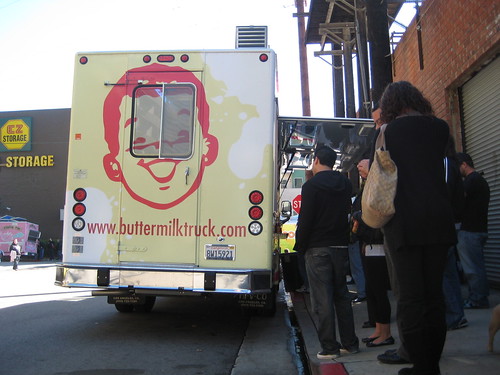Food Truck Failures: Don’t Let This Happen To You
Many people get into the food truck trend because they love food and they want an inexpensive way to share their creations with the world. That enthusiasm will help make your business successful, but it can only take you so far. Learn from these food truck failures so that they don’t happen to you.
Failure 1: Not Enough Time
Running a food truck takes a lot of time. When Jill Stolt and Carl Wolf started The Gourmet Waffler, they had no idea how much time running a small business would take. In fact, Stolt hoped to an organization for troubled youth while operating the food truck.
She quickly learned that this would require superhuman effort.
Some time-suckers include:
- Making sure you adhere to health codes in every town you serve food in
- Prepping food for the day
- Repairing the food truck when it malfunctions
- Running the business-end of the food truck (counting money, making business plans, buying ingredients, etc)
You better know what you’re facing before you get into the food truck business.
Learning From Failure
You can learn from the Gourmet Waffler’s mistakes. Make sure that you have enough time to operate all areas of your business. The time that you spend serving customers is just a portion of your day.
If possible, hire a few part-time workers to help with food preparation, taking orders, and other duties.
Also, look at your current schedule to see how you can fit your food truck business into the day. If you already have a packed schedule, then you may need to make major changes in your life before you open your own food truck.
Failure 2: A No-Good Business Plan
Every business needs a plan. Without one, you’re worse than a driver without directions. You’re a driver who doesn’t know where she wants to go.
A lot of food truck owners don’t take their businesses seriously enough. They use Kickstarter to fund initial expenses, thinking that they will automatically become successful. A few months later, they realize that they don’t know what they’re doing.
Learning From Failure
Before you buy a food truck, create a business plan that includes:
- The products and services you will offer
- How much money you need to start the business
- A mission statement explaining what your business will do to fill a niche in the community
- Sales forecasts that covers three years
- An expansion plan that shows how you want your business to grow
A business plan that includes these items will help you find success. It could also help you find investors who want to understand how your business plans to generate profits in the upcoming years.
Failure 3: Not Filling a Niche

Image via Flickr by ricardodiaz11
Many food truck owners get into the business because they know how to make a specific type of food very well. These food truck owners have been told by every person they know that they make the best hamburgers in the world.
That’s great, but how many hamburger trucks does one town need?
When a market gets over saturated with similar products, all food trucks competing with each lose customers. Think of it this way: if 100 people want to buy a hamburger, and there are 20 food trucks selling hamburgers, then those businesses aren’t going to make much money.
Even if you have the best hamburgers, you will lose some customers. Some of them will want to try a different vendor, avoid your truck’s long lines, or simply not know that you have such a good reputation.
Learning From Failure
Before you open your food truck business, observe the current environment to see what people are selling. You can use this information to create a menu that fills a unique niche.
If you know your town has 20 food trucks selling hamburgers, then you might want to add burritos, pizza, or gyros to your menu.
You could also create a niche within the hamburger glut. Try making your own spices and sauces to attract customers; or use meats that other food trucks haven’t considered. A food truck that sells bison burgers is not the same as one that sells regular hamburgers. If you want, you can get really creative by finding a wholesaler that gives you access to exotic meats such as kangaroo, elk, and wild boar.
Failure 4: Not Planning for the Slow Season
At first, everything seems great. You’re getting your name out there; growing your customer base; and making some money. Life is good.
And then November brings a cold snap that sends your favorite customers inside.
No matter how popular your food truck gets, you will hit a slow season when it gets cold. What do you expect? Most people would rather eat a Hot Pocket inside a warm break room than chomp a gourmet hotdog in the cold.
Learning From Failure
Prepare for a slow season, especially if you live in an area that has harsh winters.
You can do this by setting aside money during your prosperous months. Also, don’t assume that your startup capital is all you need to get your business up and running. You may need more capital to purchase ingredients and equipment next year.
If you have enough discipline to squirrel away money for the winter, then you can use the slow season to your advantage. Take that time to test new recipes and work on your marketing.
You can also use the slow season to cater private events. Stay as flexible as possible so that you and your employees get to make some money throughout the year. Yes, you probably won’t make as much in December as you did in July, but even a small amount of income can keep spirits high and bank accounts full.
Now that you know how you can overcome some of the most common food truck failures, do you think you have a better shot at making your business successful? Which common failures have you seen destroy other food truck businesses in your city? Share your thoughts in the comments below.
